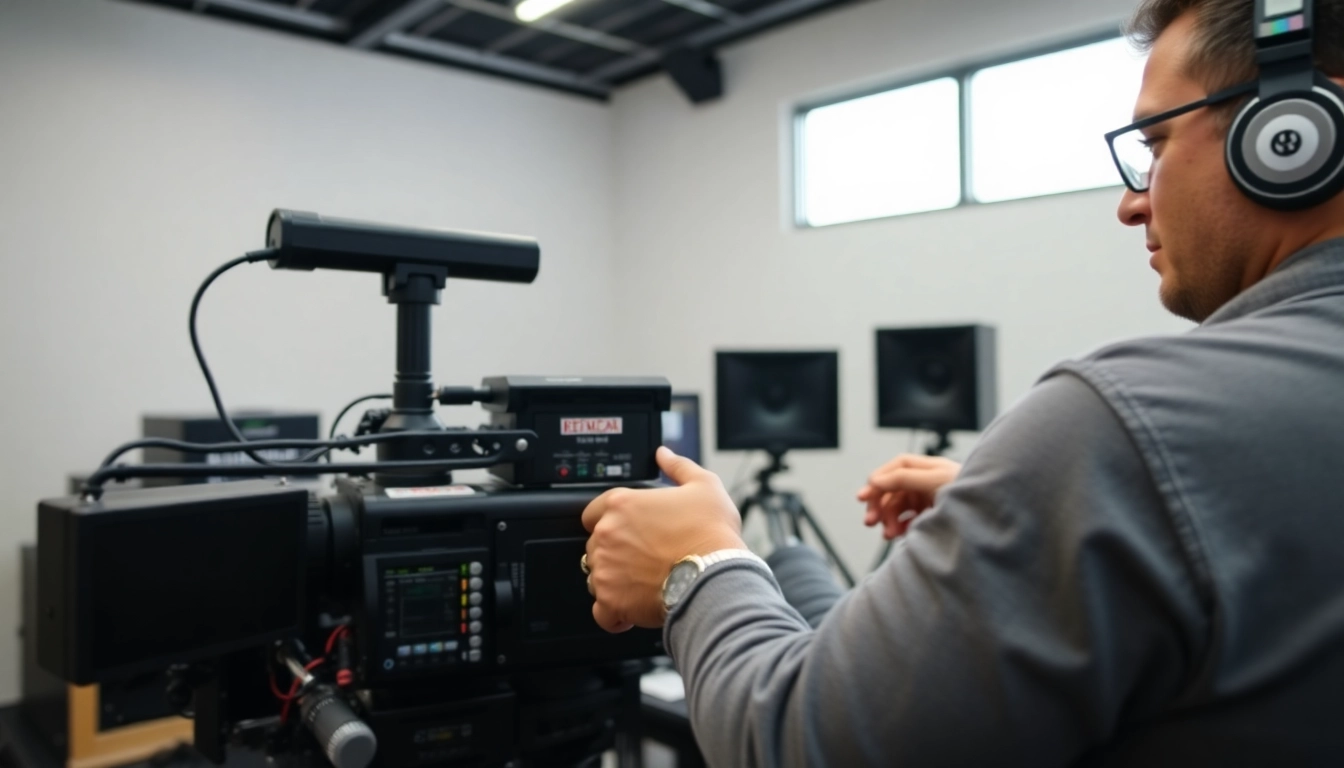Understanding Custom Workshops
Definition and Benefits of Custom Workshops
A custom workshop can be defined as a tailored educational environment designed to meet specific objectives and address unique learning needs. Unlike standardized training programs, which often follow a one-size-fits-all approach, custom workshops are crafted to align with the distinct circumstances, goals, and requirements of the participants. Such workshops can vary widely in format, duration, and subject matter, including professional development, soft skills training, technical skills advancement, and team-building activities.
The benefits of custom workshops are numerous and significant. First, they provide a focused and relevant learning experience that considers the participants’ prior knowledge and skills. This tailored approach increases engagement and retention of the material. Second, custom workshops allow organizations to address specific challenges or objectives, ensuring that the training aligns directly with business goals. Furthermore, they can foster a collaborative learning environment that promotes teamwork and collective problem-solving among participants. The adaptability in content and delivery is a key advantage, as it permits modifications that respond to continuous feedback, enhancing the overall effectiveness of the learning experience.
Types of Custom Workshops Available
Custom workshops can be categorized into several types based on their focus and delivery method:
- Professional Development Workshops: These workshops are aimed at enhancing employees’ skills and knowledge related to their specific roles, encompassing areas like leadership, sales techniques, and project management.
- Technical Skills Workshops: Focused on advancing specific technical competencies, these workshops often cover software training, programming, or specialized equipment handling.
- Team-Building Workshops: Designed to foster teamwork and improve interpersonal dynamics, these workshops often include activities that promote trust, communication, and collaboration among team members.
- Cultural Awareness Workshops: These are tailored to promote diversity, equity, and inclusion within the workplace, allowing participants to develop cultural competencies and sensitivity.
- Creative and Innovation Workshops: Targeted at enhancing creativity and innovative thinking within teams, these workshops focus on brainstorming, problem-solving, and the development of new ideas.
Why Choose Custom Workshops Over Standard Options
Choosing custom workshops over standard training options can significantly impact the quality of learning and the achievement of desired outcomes. One major advantage lies in customization: organizations can focus specifically on the skills that are most pertinent to their workforce. In contrast, standard workshops may cover a broad curriculum that may include topics irrelevant to certain participants, wasting time and resources.
Additionally, custom workshops often feature content tailored to the company culture, resulting in a higher relevance of material and improved participant engagement. The ability to integrate real-world problems and scenarios into the workshop structure can also enhance learning, as participants better relate to the content and see the immediate application in their roles.
Designing Your Custom Workshop
Key Elements for Success in Custom Workshops
Designing an effective custom workshop involves several critical elements:
- Clear Objectives: Establishing well-defined goals for what the workshop is intended to achieve is paramount. This clarity steers the content creation and ensures participants understand what they can expect to gain.
- Engaging Delivery: The manner in which content is delivered can significantly affect engagement levels. Incorporating a mix of teaching methods—such as interactive sessions, group discussions, and hands-on activities—can enhance participation.
- Qualified Facilitators: Skilled facilitators are crucial to the success of any workshop. They not only guide the sessions but also adapt to the participants’ needs during the workshop.
- Feedback Mechanisms: Establishing ways to gather feedback during and after the workshop can help refine content and delivery for future iterations, making continuous improvement possible.
Participants’ Needs: How to Identify Them
Understanding the specific needs of participants is essential in designing a successful custom workshop. Several strategies can be employed to effectively identify these needs:
- Surveys and Questionnaires: Distributing pre-workshop surveys can help gauge participants’ current knowledge levels and desired outcomes.
- Interviews or Focus Groups: Conducting interviews or focus groups with potential participants can provide qualitative insights into their expectations and concerns.
- Observation: Observing employees in their work environment can reveal skills gaps and training needs not readily expressed in surveys.
Structuring Content for Maximum Impact
The structure of custom workshop content is vital for effectiveness. It’s beneficial to employ the following strategies:
- Chunking Information: Breaking down complex concepts into smaller, digestible segments helps participants process information more effectively.
- Use of Examples and Case Studies: Real-life instances provide context and applicability, enhancing understanding and retention of the material.
- Active Learning Strategies: Incorporating activities such as role-playing, group discussions, and problem-solving sessions encourages participation and reinforces learning.
Implementation of Custom Workshops
Steps to Launch Your Custom Workshop
The successful implementation of a custom workshop requires careful planning. Here are key steps to consider:
- Define the Objective: Clearly articulate what the workshop intends to accomplish based on the identified needs.
- Develop Content: Based on participant needs, craft the content and structure of the workshop.
- Select Facilitators: Engage experienced facilitators who align well with the workshop’s objectives.
- Choose a Location: Decide on an appropriate venue that facilitates interaction and engagement.
- Market the Workshop: Utilize internal communication channels to generate interest and ensure all potential participants are aware of the workshop.
- Conduct the Workshop: Execute the plan while being adaptable to participant needs as they arise during the workshop.
- Evaluate and Follow Up: After the workshop, assess its success against the set objectives and solicit participant feedback for future improvements.
Collaborating with Experts and Facilitators
Collaboration with experts adds value to the workshop by integrating high-level knowledge and experience. Experts can provide advanced insights, serve as facilitators, or even co-create workshop content with your organization. Consider these approaches for effective collaboration:
- Recruit Industry Specialists: Partner with recognized professionals who bring credibility and unique perspectives to the workshop.
- Leverage Internal Expertise: Engage knowledgeable employees who can share their insights and real-world experiences with other participants.
- Create Collaborative Networks: Establish partnerships with other organizations, educational institutions, or training providers to expand resources and expertise.
Choosing the Right Location for Your Workshop
The location of your custom workshop can considerably influence participant engagement and comfort. Factors to consider include:
- Accessibility: Ensure that the venue is easily accessible for all participants, including considerations for transportation and parking.
- Environment: Choose a location that is conducive to learning with appropriate facilities for both group activities and individual tasks.
- Technological Support: Verify that the venue has the necessary technological amenities, such as projectors, high-speed internet, and audio-visual equipment.
Evaluating the Effectiveness of Custom Workshops
Metrics for Measuring Success in Custom Workshops
To determine the effectiveness of a custom workshop, it is essential to establish clear metrics for success. Common metrics include:
- Participant Satisfaction: This can be gathered through immediate feedback surveys that assess participants’ enjoyment and perceived value of the workshop.
- Knowledge Retention: Pre-and post-workshop assessments can help measure how much participants have learned.
- Behavioral Changes: Tracking changes in behavior or performance metrics within the workplace following the workshop can indicate its impact.
Gathering Participant Feedback and Insights
Feedback gathering is crucial for evaluating workshop success. Methods for collecting participant insights include:
- Surveys: Deliver post-workshop surveys that ask specific questions regarding content, delivery, and overall experience.
- Focus Groups: Conducting focus group discussions after the workshop can lead to a deeper analysis of participant experiences.
- Follow-Up Interviews: One-on-one interviews can provide qualitative feedback and suggestions for improvement.
Continuous Improvement: Adapting Workshops for Future Success
To ensure ongoing success of custom workshops, organizations should embrace a philosophy of continuous improvement. Key strategies include:
- Reviewing Feedback: Regularly assess participant feedback to make data-driven adjustments to the workshop content and structure.
- Benchmarking: Compare the results of your workshops against industry standards or other organizational workshops to identify areas for enhancement.
- Stay Current: Keep up with emerging trends and technologies in your industry to continually evolve the content and delivery of workshops.
Case Studies and Best Practices
Inspiring Examples of Successful Custom Workshops
Several organizations have successfully implemented custom workshops that yielded significant results. For instance, a leading tech company developed a custom workshop focused on advanced coding techniques that resulted in a 30% increase in project delivery speed amongst its engineering teams. By aligning the workshop content directly with departmental goals, participants reported higher satisfaction and practical application of learned skills.
Another example comes from a manufacturing firm that created a customized team-building workshop aiming to improve collaboration across departments. Post-workshop surveys indicated a 40% improvement in inter-departmental communication, leading to more efficient workflows and increased productivity.
Lessons Learned from Failed Workshops
While there are many success stories, learning from less successful workshops is equally important. A common pitfall encountered is overloading sessions with too much information without adequate breaks or interactive elements, leading to participant disengagement. It’s critical to balance information delivery with participant engagement through activities or breaks.
Another lesson involves insufficient participant needs analysis. Workshops designed without a clear understanding of participant backgrounds and expectations can fail to resonate, which diminishes impact and value.
Industry-Specific Custom Workshop Innovations
Across various industries, organizations are crafting innovative custom workshops tailored to their sectors. For instance, in the healthcare sector, workshops focusing on patient-centered communications have improved provider-patient interactions, enhancing overall care quality.
In graphic design, custom workshops utilizing cutting-edge software technology have become pivotal in training teams to adopt new tools, boosting creative productivity.
Overall, the rise of custom workshops signifies a shift towards more personalized learning experiences within the workplace, ultimately leading to enhanced skill development and effective team dynamics.



